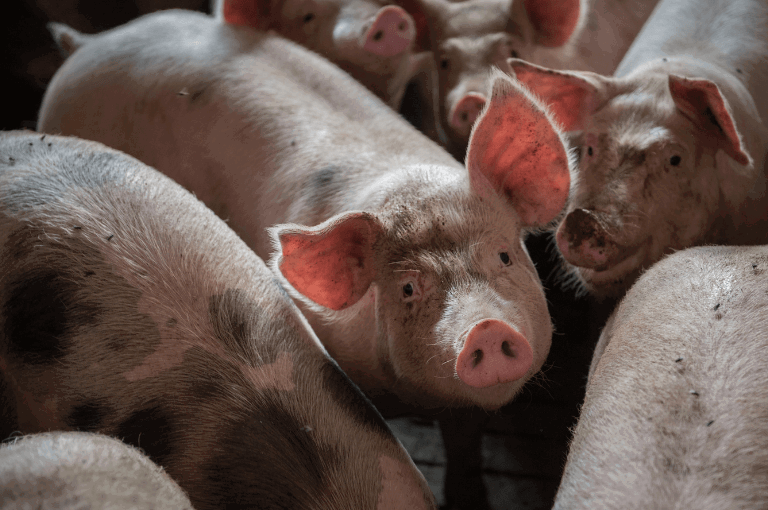Meaningful, Third-Party Certifications
Global Animal Partnership (5-Step Animal Welfare Rating System)

This five-step rating system ranges from Step 1 (no crates, no cages, and no crowding) to Step 5+ (animals spend their entire life on pasture on the same farm).
Animal Welfare Approved by A Greener World

No cages are permitted. Access to pasture and indoor enrichment is required, so animals raised under this standard can exhibit essential natural behaviors that improve their quality of life.
Regenerative Organic Certified

Animals have continuous and open access to pasture. Although new dairies at the baseline "bronze" level have two years to transition from cow tie-stalls and individual calf housing. Only breeds that thrive outdoors are allowed, and chickens must be slow-growing.
Certified Humane

No cages are permitted. Under this standard, access to the outdoors is not required for pigs and poultry but is required for other species. Indoor enrichment is required so animals can exhibit natural behaviors that improve their quality of life.
Other Certifications
USDA Organic

Most restrictive cages and feedlots are not permitted. However, painful mutilations are still permitted. Animals do not necessarily have access to pasture, though they will have access to some outdoor area, which may be limited to a screened-in concrete "porch." Antibiotics are prohibited and the feed is 100% organic. Note: In January 2017, the USDA approved a new rule to require higher animal welfare standards on organic farms—however, this rule was withdrawn by the next administration before it could be officially implemented.
American Humane Certified

Some, but not all, cages and crates are banned. It does allow enriched cages for laying hens and feedlots for beef cattle. Animals are typically provided more indoor space than conventional farms but less than other certifications.
Other Labels
Pasture-Raised, Free-Range, and Free-Roaming
Terms like these have no legal definition in the US; Producers must only demonstrate to the USDA that the birds have been allowed outdoor access at some period of their lives. It is unclear how much space is provided or the condition of the outdoor areas, and how often the birds are allowed outside.
Grass-fed
The "Grass-Fed" label only applies to beef cattle, lamb, or sheep. The use of this label is not regulated for dairy cows, and "Grass-Fed" has no meaning for poultry or pigs. "100% Grass-Fed" can only be used for beef cattle, lamb, or sheep that were only fed grasses. However, even "100% Grass-Fed" animals can be confined to a feedlot as long as they are only fed grasses. If an animal is fed grain for some of their lives, it must be clearly stated on the packaging (e.g., "80% Grass-Fed"). To ensure animals spent their lives grazing on healthy pastures, look for products marked as Certified Grassfed by A Greener World, Regenerative Organic Certified, American Grassfed Association, or Audubon Conservation Ranching Certified.
Beware of these terms:

Natural or naturally-raised
This claim has no relevance to animal welfare.
Vegetarian-fed
Vegetarian-fed means they are not fed animal byproducts, but this has little relevance to animal welfare.
"Humane" or "Humanely-Raised"
There is no legal definition for "humane" or "humanely-raised." Unless the product has a certification listed on this page, there is little guarantee that the term is meaningful.
Cage-free (for chickens raised for meat)
While "cage-free" is meaningful for egg-laying hens, no chicken raised for meat in the US is kept in a cage. This label is a meaningless distinction, indicating how chickens would be raised regardless of welfare policy.
Hormone-free (for poultry and pigs)
It is illegal to give poultry and pigs hormones. This label is a meaningless distinction indicating that the company follows the law.
For more information about animal welfare labels and what products to buy, download our free Compassionate Food Guide!
